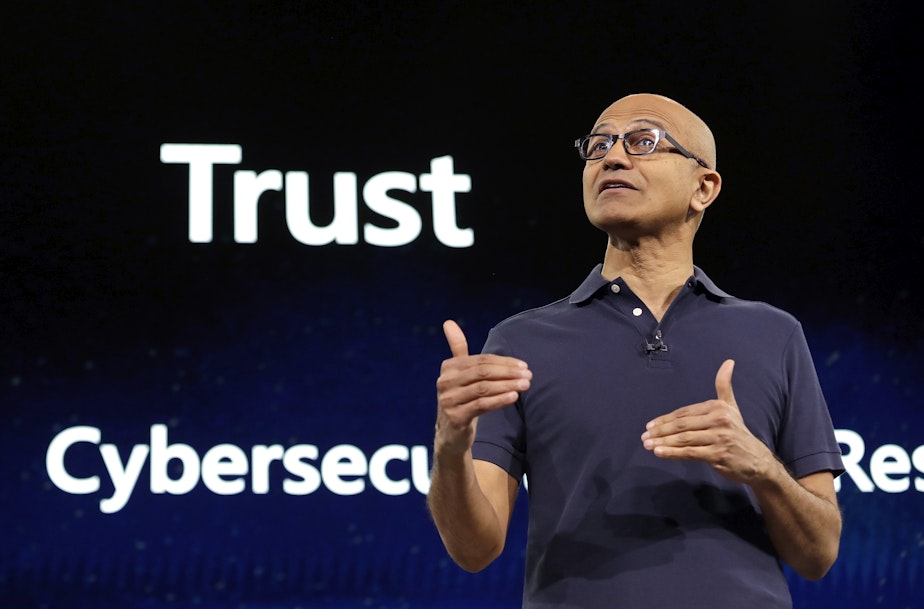Trust in Microsoft? That's the message at Build conference

Microsoft is wrapping up its annual developer conference in Seattle on Wednesday. Geekwire’s Todd Bishop hit the highlights of Build for KUOW’s Angela King.
Todd Bishop: The thing that stood out was that Microsoft is focusing heavily on trust and privacy. Given all of the scrutiny that Facebook and Google and others in the industry are facing, Microsoft is actually in a much better position on these issues for a few reasons, one being that it doesn't rely heavily on advertising revenue but also it's been around for a while. It's been through these battles with the Department of Justice and the Federal Trade Commission and Microsoft is just quite frankly smarter about this trust and privacy stuff than many of its rivals are.
Angela King: Last month Microsoft refused to sell its facial recognition software to a law enforcement company in California. But right before then it was involved in some sort of facial recognition technology in China to monitor the nation's Muslim population. So it seems like when it comes to facial recognition Microsoft is walking one walk and talking another. Any discussion about that confusion at Build?
Bishop: No, they did not get into policy issues on stage at Build. But this is certainly a dilemma for them and I know that they've faced backlash internally from employees over some of these decisions. It's an issue for the tech industry broadly in terms of how they interact with governments, with law enforcement agencies, especially with intelligence agencies here and abroad and all of these companies are grappling with it.
Microsoft just happens to be in a little bit of a different position in part because it's savvier -- for example on the legislative front in Washington state where it can actually back legislation that might pin one of its rivals, Amazon, into more of a corner on some of these privacy issues. Just as an example of this, Microsoft supported a data privacy bill that would have imposed new regulations particularly on facial recognition software in Washington state. And because Amazon and Microsoft are both based here, the state law in areas like this can effectively become the de facto law across the nation and globally.
That bill ultimately did not pass or become a law, but it's an example of a situation where Microsoft doesn't depend as much on that part of its business as Amazon does. And so Microsoft was able to support that privacy bill without as much negative repercussions for itself and effectively put Amazon in a difficult position there.
Sponsored
King: Aside from the trust and privacy topic, was there any other tech news out of Build for developers?
Bishop: Absolutely. Microsoft is bringing back Internet Explorer as a mode inside its Edge browser, which will address compatibility issues for people who had made the switch from the prior browser to the new one. It's also open sourcing its quantum computing programming language. There was not this year the type of news that would really define Microsoft's next two to three years and that could be a concern for the company's shareholders.
In fact one of the main products that Microsoft is betting on is its HoloLens: Mixed Reality headset. That actually was the subject of a demo that was a complete bust at the beginning of the keynote. They were going to try and land the Apollo 11 lander on the moon in mixed reality, and it just literally did not happen.
This interview was edited for length and clarity.





